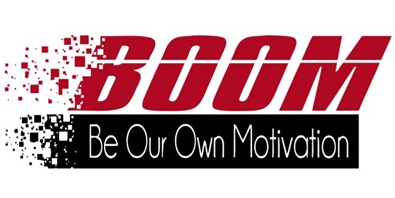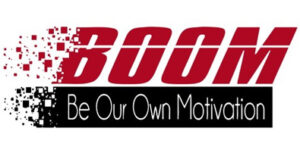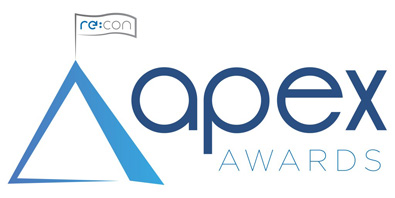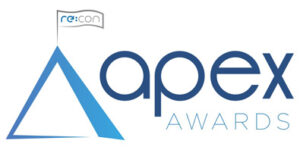RE:CON 2023
PRESENTATIONS
Sessions and Presentations
at This Year’s re:con
re:con 2023 Presentations and Summaries
BREAKFAST KEYNOTE – Storytelling Helps Veterans
PRESENTED BY: Bill Krieger
Bill is a retired Army Captain with a combat tour to Iraq in 2006. When he returned from deployment, he struggled with mental health and eventually attempted suicide. Part of his road to recovery was telling his story to others. He found that this was not only therapeutic for himself, but others could relate to his journey and he found that it helped them as well. Storytelling is one of the oldest forms of communication, dating back to cave drawings. It is through storytelling that we help ourselves, we help others, and we preserve our shared history. This form of communication transcends all the differences that we may have and truly brings us together regardless of age, gender identity, race, ethnicity, or beliefs. Bill also has a nonprofit that allows Veterans to tell and preserve their stories.
Approved 0.5 CRC CEU
LUNCH KEYNOTE – Weaving Narratives: The Power of Storytelling in Building Strong Communities
PRESENTED BY: Mudita Jagota
Storytelling is the key to Community Building. Storytelling breeds Advocacy and Social Change!
In this keynote speech, Mudita will take the audience on a journey to explore the power of storytelling in building strong communities and advocating for disability rights. Through insightful anecdotes, this keynote serves as a way to unlock the secrets of storytelling’s ability to inspire, unite, and transform.
Drawing from personal experiences, Mudita will elucidate how sharing her life story, achievements, and challenges has served as a catalyst for forging bonds within the disability community. She’ll unveil how storytelling has personally enriched her life and ignited a path of advocacy. It will leave the audience with a renewed appreciation for the age-old art of sharing stories and the incredible potential it holds in shaping a more vibrant and empathetic world towards people with disabilities.
Approved 0.5 CRC CEU
A Hands-On Approach to Assistive Technology
PRESENTED BY: Kellie Blackwell
Approved 2 CRC CEUs and 2 SW CEUs
The Michigan Assistive Technology Program (MATP) is a free federally funded program under the Assistive Technology Act. Join Kellie Blackwell, MA, CRC and other MATP AT Specialists to learn more about the services provided by MATP, while having an opportunity to get a hands-on experience with a variety of inventory within the lending library. This session will provide a way for participants to ask questions while checking out any of the devices on display. From AT for the workplace to AT for Outdoor Recreation to AT for Gaming and many areas in between, participants are encouraged to get the devices in their hands and see how it all works!
Above the Bridge: Vocational Rehabilitation Partnerships that Work |
PRESENTED BY: Carol Bergquist, Marilyn Noble, Kathy Flagstadt, and Sara Chernick
Approved 1 CRC CEU and 1 SW CEU
Providing VR services across 16,377 square miles of geographic, cultural, and climatic challenges in Michigan’s Upper Peninsula (UP) is interesting, rewarding and fun. Four presenters describe how partnerships between Michigan Rehabilitation Services, Community Rehabilitation Organizations, Indian Tribes, Centers for Independent Living, School Districts, Colleges and other Community Agencies work to offer quality services to the UP’s unique population. A facilitated panel discussion with experienced VR providers offers insight into the positive impact that strong, dedicated, long term partnerships have on service delivery and outcomes. Collaborative efforts ensure that opportunities for individualized services are available to all people with disabilities and are provided in the most effective, efficient and culturally appropriate ways.
Artificial Intelligence – Legal & Policy Implications for Individuals with Disabilities
PRESENTED BY: Amy Maes
Approved 1 CRC CEU, and 1 SW CEU
| This session will provide participants an opportunity to learn the definition of AI; identify current and future legal issues presented by AI; an overview of the laws that currently apply to AI; current EEOC and DOJ guidance; update on White House’s AI Bill of Rights; and a summary of the case law addressing AI and ML issues related to dealing with discriminatory practices. |
Artificial Intelligence’s Role in Modernizing Human Services
PRESENTED BY: James Willis
Approved 1 CRC CEU, and 1 SW CEU
| Join me in a journey that will provide a brief overview on how AI works, some practical applications of AI you can use right now, and some thoughts on how it will change the delivery of human services in the future. |
Assistive Technology For Mutual Support and Recovery
PRESENTED BY: Norman G DeLisle Jr
Approved 1 CRC CEU, and 1 SW CEU
| There are an increasing number of digital tools available that people with lived experience of IDD, SMI, and SUD can use to support and expand their life skills and recovery. This presentation focuses on emotional self-regulation, executive function support, and personal safety apps and tools. Apps that focus on significant symptoms in IDD, SMI, and SUD will be reviewed, and participants will be linked to a curated and updated list of additional app and support possibilities. |
Business is Our Customer Too!
PRESENTED BY: Craig Saunders, and Gary Holik
Approved 1 CRC CEU, and 1 SW CEU
Since the implementation of the Workforce Innovation and Opportunity Act (WIOA), some Vocational Rehabilitation (VR) agencies have struggled to serve business customers or recognize the subject matter expertise VR has to offer. We will answer the following questions; How can we build long term relationships with business? What services can be offered? What value these services have to both business and to our shared job seeking customers.
Charting The Seas of Resource Navigation: A Glimpse into Collaborative Practices & Barrier Resolution
PRESENTED BY: Chris Smith, Deb Balk
Approved 1 CRC CEU, and 1 SW CEU
Have you ever worked with someone who was motivated to achieve a goal, but found it difficult to overcome barriers? Have you had someone ask you for help finding resources in their time of need? If you have every provided resources or knowledge to help empower someone, then you may be a Resource Navigator. This presentation aims to dive into the art and power of resource navigation, provide tools and strategies, as well as share experiences and successes. Members of the Goodwill of Greater Grand Rapids Resource Navigation Team will present and provide insight into the process of navigating the at times rough seas of finding resources of individuals in need. With collaboration amongst community partners, the path towards guiding people to the resources they need can make the journey much easier. Come join us to see how resource navigation is vital to the success of the people we serve and how you may be a Resource Navigator yourself!
Create a Culture of Experiential Support
PRESENTED BY: Kat Thompson and Cameron Cranna
Approved 1 CRC CEU, and 1 SW CEU
Attending this presentation participants can expect to discuss and learn the impact of creating a culture of coaching on an organization. Various coaching methods and strategies will be shared from the perspective of Supervisor Coaching, and we will discuss how these can be adopted by other organizations. Participants will leave with a structured coaching plan that promotes psychological safety, fosters a growth mindset, and inspires a shared vision for individual and organizational resilience and development.
Diversity, Equity and Inclusion for People We Serve |
PRESENTED BY: Susan Salhaney, George Winn
Approved 1 CRC CEU, and 1 SW CEU
| Disability inclusion ensures all individuals regardless of their abilities are able to participate in social, vocational and health promotion activities. While strides have been made in diversity, equity and inclusion for many populations, individuals with a disability are a population that have often not been represented in these efforts nor their voice included. Through understanding DEI principles, barriers to inclusion in community, vocational and health access and strategies to support and include individuals with disabilities in inclusion actions. |
Diving Into Intersectionality to Ensure Best Practices and Fostering an Inclusive Work Environment
PRESENTED BY: Carie Branch and Rene Dell
Approved 1 CRC CEU, and 1 SW CEU
We are going to take a deep dive to explore intersectionality in the workplace. This session will include a hands on approach to really digging into the topic of DEI in the work place. This will include a period of guided self-reflection, action steps to walk away from the presentation with, a review of policy changes that can help to foster a more inclusive environment and will end with resources and next steps.
Empowering Direct Service Professionals in a Positive Working Environment
PRESENTED BY: Menachem Hojda LMSW, Lana Leek, and Amber Sage
Approved 1 CRC CEU, and 1 SW CEU
| A diverse panel of DSP’s from across the workforce will discuss their experiences and views regarding empowering workplaces. |
Empowering the Community: Generative Artificial Intelligence’s Role in Advancing Inclusion and Opportunities |
PRESENTED BY: Scott Caesar
Approved 1 CRC CEU, and 1 SW CEU
| Generative AI is revolutionizing the way we interact with technology and information. For the disability community, these innovations present unique opportunities and challenges. This session will delve into the ethical, practical, and empowering aspects of implementing generative AI in serving individuals with disabilities. Through real-life success stories, best practices, and interactive discussions, we’ll explore the potential of AI in creating a more inclusive future.
**Audience Takeaways**: – An understanding of the potential of generative AI for the disability community. |
Exploring MCTI as a Post Secondary Option |
PRESENTED BY: Mandy Matthews
Approved 1 CRC CEU and 1 SW CEU
Discussion of available MCTI assessment services and vocational training and how they impact students seeking to enter the workforce. Student success stories, current initiatives and updates will be made available.
Fostering an Ethical Workplace Culture
PRESENTED BY: Menachem Hojda, LMSW
Approved 2 CRC CEU in Ethics, and 2 SW CEU in Ethics
People who work in the non-profit service sector are increasingly seeking workplaces that reflect their values and honor their ethics. This workshop will examine how leaders can review their policies, procedures, and leadership styles to attract and maintain employees that uphold the values of the organization and foster ethical behavior in the workplace.
Gesher Human Services’ Creative Expressions Program
PRESENTED BY: Craig Nowak
Approved 1 CRC CEU, and 1 SW CEU
Gesher Human Services’ Creative Expressions Program partners with community organizations like the College for Creative Studies, Detroit Symphony Orchestra, Detroit Opera, Matrix Theatre, and more, to develop arts education, enrichment, and opportunities for people with mental health challenges and intellectual & developmental disabilities. We focus on all creative disciplines, from visual arts, music, and literary arts to performing arts and dance. Our participants hone their skills with a variety of classes led by our creative partners whereafter, we help them find opportunities so they can develop themselves artistically and fulfill their own professional creative goals. Creative Expressions artists have exhibited their art at the Museum of Contemporary Art Detroit, Gallerie Camille, and Detroit Contemporary to name few. They’ve performed music on top of the Detroit Opera House, in the Detroit Symphony Orchestra’s Max M and Marjorie S Fisher Music Center, and several other places throughout the community. Our participants have danced with professional choreographers during theatrical plays. They’ve walked in runway shows. And several have had their writing published. The presentation will delve into these sorts of participant accolades, their connections to our Creative Expressions Program, how we’ve managed to develop relationships with so many magnificent creative community partners, and how other organizations can mirror the success of our program within their own respective communities.
How Community Mental Health and Service Providers Effectively Collaborate
PRESENTED BY: Adam Jenovai, Sally Smolinski, and Tim Hatfield
Approved 1 CRC CEU, and 1 SW CEU
OCHN, along with a vocational provider, will present on approaches to collaboration to best meet needs of people receiving service. This presentation will provide an overview of:
1. OCHN provider meeting structure to ensure dissemination of information.
2. OCHN and provider workgroups used to implement new rate structures, etc.
3. OCHN strategies for provider engagement.
4. A provider’s perspective of the contractual relationship with OCHN.
How Differentiation and Human-Centered Engagements Shape Best Practices
PRESENTED BY: Kaily Kraft, Dr. Sam Evalt, Alvin Brewer
Approved 1 CRC CEU, and 1 SW CEU
| Although interventions for individuals with disabilities provide vital strategies and lessons, the humanizing connection provides the enhanced support individuals need. The presentation highlights practices and strategies that MSU STEMM-Up Career Pathway Coordinators engage with individuals. Presenters will examine best practices of how individualization shapes a human-centered design that promotes trust and growth. The presenters will address the following questions:
In what ways do STEMM-Up Career Pathway Coordinators, CPCs, shape best practices through a human-centered design and collaboration? How do CPC practices differentiate with set curricula? How do human-centered pedagogies supplement and enhance ASSET’s Big10 Practices? |
Igniting Your Personal Fire to Avoid Burnout and Achieve Your Goals. A Guide To Self-Care and Goal Setting!
PRESENTED BY: Rene Dell
Approved 1 CRC CEU, and 1 SW CEU
We are living in a world where many companies are short staffed and more responsibilities continue to fall on the current team. Burnout and mental health struggles seem to be at an all time high. We will be digging into how you can make self-care a priority. This will allow you to show up in all aspects of your life as your best self. And then we will dive into goal setting. We will explore how you can set goals that can help bring you to the next level. The commitment displayed with help to eliminate burnout and crush your goals. You must strive to find balance in all aspects of your life and set your priorities. You deserve to live your best life and it is essential for everything to be balance and that you have your tool box you can take with you to set you up for success!
Insights Into Action: Harnessing the Power of Data & Storytelling to Transform Intellectual and Developmental Disability Services
PRESENTED BY: Sean Luechtefeld, Ph.D., CAE
Approved 2 CRC CEUs, and 2 SW CEUs
| The organizations and professionals delivering services that enhance the lives of people with intellectual and developmental disabilities (I/DD) understand all too well the recruitment and retention challenges that have defined the direct support workforce for nearly three decades. To build a more sustainable service delivery system, significant investments will need to be made by policymakers and regulators at all levels of government.
But how do we make the case for such transformative investments in I/DD services, especially given heightened polarization and the very same resource limitations that created the crisis in the first place? As the leading voice in Washington for community I/DD providers, ANCOR has found two essential ingredients—comprehensive data and transformational stories—to be instrumental in making the case for investments that strengthen services. Our success in combining these two essential ingredients has led to support from unlikely legislative champions and is moving the needle when it comes to political will for investing in the federal Medicaid program. In this session, the presenter will help participants tackle both sides of the equation to understand at the strategic and tactical levels how to combine powerful data with compelling stories to fuel effective advocacy using tools that can be applied in a range of other helpful contexts as well (e.g., fundraising, community outreach, etc.). First, participants will learn how they can leverage the Case for Inclusion—a repository of data and advocacy resources created by ANCOR in partnership with United Cerebral Palsy—to help audiences understand the scope of the challenges we face. Then, participants will use a framework for storytelling that they can put into practice immediately to identify, shape and share stories that compel action. By the end of the session, participants will feel confident in collaborating with their colleagues back home to create a game plan for inspiring meaningful action wherever it’s needed. |
Issues Facing Autistic Adults in Michigan and the Need for an Autistic Adult Statewide Advisory Committee
PRESENTED BY: Katie Oswald
Approved 1 CRC CEU, and 1 SW CEU
Nothing about us without us! This session will discuss the need for an Autistic Adult Statewide Advisory Committee that is being developed to advise leaders and policymakers in Michigan and advocate for the needs of autistic adults all over the state.
We will discuss the biggest issues currently facing the autistic community, as defined by autistic adults. Topics will include:
• Mental and physical health, access to care, and life expectancy
• Independence, interdependence, and isolation
• Employment, alternatives to traditional employment, and poverty
• Affordable housing and risk of homelessness
• Lack of acceptance and inclusion by a neurotypical-majority society
Other topics can be covered as requested by attendees.
LGBTQ+ in the Workplace
PRESENTED BY: Margaret Avery
Approved 1 CRC CEU in Ethics, 1 SW CEU in Ethics
| This presentation will focus on why allyship matter, how to talk about sexual orientation in the workplace, importance of pronouns, discrimination, the lavender ceiling, etc. |
Navigating Uncomfortable But Necessary Conversations
PRESENTED BY: Shonda Rushing
Approved 1 CRC CEU, and 1 SW CEU
I have found that one of the most difficult things for people to do personally and professionally is just tell the truth for various reasons. They think how others will feel about what needs to be said. They think about how they feel about how what they say will be perceived. They consider the laws of connection and do not want to disconnect themselves. And oftentimes the truth is lost somewhere in the middle. But no freedom is gained until the truth is exposed and nothing changes until it is understood.
Policy Priorities for the Michigan Legislature
PRESENTED BY: Todd Culver, Malcolm Kletke, and State Rep. Sharon MacDonell
Approved 1 CRC CEU, and 1 SW CEU
Todd will facilitate a panel discussion with Malcolm Kletke of MHSA, one of Michigan’s leading multi-client lobbying firms, and key representatives from the Michigan legislature. Each will identify current policy priorities, discuss the legislative landscape, outline upcoming budget expenditures, and look ahead to an important election year in 2024.
Reasonable Accommodations for People with Autism in Today’s Workplace
PRESENTED BY: Katie Kinde
Approved 1 CRC CEU, and 1 SW CEU
Autism presents specific challenges to individual workers and achieving success in the workplace. Communication is a key ingredient for success, however aspects of communication such as eye-contact can be extremely uncomfortable and at times painful to people with Autism. Misinterpreted social behaviors can lead to isolation, lack of promotion, missed opportunities and even termination.
Learn strategies for creating a more accepting workplace as Katie Kinde talks about her research on this subject and shares stories of her individual journey and personal success in the workplace.
Service Animals 101
PRESENTED BY: Christa Martin, MRC, CRC
Approved 1 CRC CEU in Ethics, and 1 SW CEU in Ethics
| Navigating the difference between service animals, emotional support animals, and the laws and regulations that impact individuals with disabilities use of them at work, at home, in public, etc. is not always easy for rehabilitation professionals or for their clients. This is a highly interactive session that engages participants and tests their current knowledge of this subject, particularly how it relates to the ADA and employment, as well as the CRCC Code of Ethics. Canine Companions for Independence and Assistance Dogs International will be highlighted as well! (Specific CRCC Code of Ethics addressed include sections: A.2., C.1., D.1., D.2., D.3., and M.1.) |
Skill Building in a Post-COVID World
PRESENTED BY: Charlene Chandler and Shannon Kelley
Approved 1 CRC CEU, and 1 SW CEU
In a post COVID world, adults with Cognitive and Developmental Disabilities have been faced with skill loss and a lack of social opportunities. Using a multidisciplinary transition model, Goodwill of Greater Detroit (GGD) is training adults with developmental disabilities on a variety of career pathways and helping them to lead independent and socially fulfilled lives. GGD teaches life skills, digital literacy and work-ready skills to people with cognitive disabilities. Our program prepares its users for a tech-driven society and aligns independent living goals to project-based learning. This increases positive employment outcomes and enables participants to be more independent in their lives.
State Vocational Rehabilitation Agencies – National Perspective & Priorities
PRESENTED BY: Bill Robinson
Approved 1 CRC CEU, and 1 SW CEU
WIOA and the joint implementing regulations placed new demands on State Vocational Rehabilitation Agencies. It has been 7 years since the regulations were issued and nine years since the legislation was passed. Since that time there has been unprecedented burdens placed on the VR system. Over 80 directors have retired or left. Post-covid, attracting qualified staff has created additional stress on agency services. The Council of State Administrators of Vocational Rehabilitation (CSAVR) has initiated a series of strategic objectives to address these challenges. In this session, you will learn how VR at a national level is focusing on creating an environment and strategy to engage customers, stakeholders, and staff.
Successful Partnerships: Genesee Health System and Vocational Independence Program
PRESENTED BY: Rene Sherwood and Amy Johnson
Approved 1 CRC CEU, and 1 SW CEU
Rene and Amy discuss how their partnership has benefitted the people they serve and their community.
The Art of Supervision: Reflecting on Supervisee Qualities in Clinical Supervision |
PRESENTED BY: Asmau Ayub, Narae Yu
Approved 1 CRC CEU, and 1 SW CEU
| Supervision is an essential component of the counseling profession. Served beyond the gatekeeper role, most supervisors are motivated to provide their supervisees with the best possible support. This intent makes it essential to assess the qualities and competence that supervisees convey into the supervisory relationship. An important aspect of the art of supervision relates to how the supervisor’s personality interacts with their professional predisposition, and how this evidently plays out with their supervisee’s competence. In this presentation, we will discuss some strategies and tips for supervisees to effectively communicate with their supervisors. Suggestions are made that address the difficulties that arise while matching supervisors with their supervisees. We provide recommendations on incorporating the necessary and relevant strategies to achieve seamless assimilation. Our goal is to bridge the gap between the complexities of personality and professional predispositions and highlight some effective modalities and strategies when matching supervisees with supervisors. We believe that this will improve the effectiveness of the supervisory relationship, provide a more useful platform for full engagement, learning, and transformation in the context of clinical practice, and ultimately, lead to better client outcomes. |
The Heart of Leadership |
PRESENTED BY: Shonda Rushing
Approved 1 CRC CEU, and 1 SW CEU
| Professionals working in vocational rehabilitation often encounter unforeseeable obstacles that demand tactical expertise as well as exceptional leadership qualities. To truly comprehend what it takes to be a leader, one must first navigate through the turmoil and uncertainty of self-discovery. This presentation delves into the process of leadership development, emphasizing that enduring hardships and organizational turmoil can lay the groundwork for successful leadership that is driven by character. |
The Importance of Job Coach Training
PRESENTED BY: Maria Peak and Matt McDonald
Approved 1 CRC CEU, and 1 SW CEU
| In today’s ever-evolving job market, the role of a skilled job coach has become increasingly indispensable. As individuals navigate employment opportunities, a job coach serves as a guiding light, offering invaluable support and expertise to help individuals achieve their career goals and maximize their potential. This presentation explores the critical importance of skilled job coaches and their impact on the lives of the people we serve. We will delve into the role of a job coach and important skills they need to exhibit. |
The Intersection of Employment and Sexuality: Building Healthy Relationships at Work Using the Elevatus Training Curriculum for People with Developmental Disabilities
PRESENTED BY: Mary Shehan
Approved 2 CRC CEUs, and 2 SW CEUs
We all want to live full, happy and satisfying lives with the ability to learn, live interdependently, work. We all want to have healthy relationships with our friends, significant others and colleagues in the work environment. This is true for young adults with Intellectual and Developmental Disabilities (IDD), as well. Many people with IDD receive messages that they aren’t sexual beings and receive fewer opportunities to learn factual information on this important topic. Staff from the Michigan Developmental Disabilities Council and Peer Educators with disabilities will present information about the Building Healthy Relationships at Work curriculum from Elevatus Training and discuss how this training is available throughout Michigan.
The Value of Telling Your Story |
PRESENTED BY: Sharon Emery
Approved 1 CRC CEU, and 1 SW CEU
| Disability is never anyone’s total identity. We are much more than what society has categorized as our inability to do certain things. We can all agree on that.
And yet, disability in its myriad forms is undoubtedly part of who we are. (Each one of us has something, right? The so-called able-bodied may have trouble accepting that, but there’s help for them…) The challenge is in figuring out where disability fits into our identity, our life story. But the really exciting part is that we can write that story. Each of us can tell the world who we are, social constructs be damned. Human beings have the unique facility among the animal kingdom to use language. It is, in fact, the way we survive. We use language to process the large and small events of our lives and to give them meaning. As the Pulitzer Prize-winning author Joan Didion wrote, “We tell ourselves stories in order to live.” Indeed. But telling our stories, finding our identities, can be daunting. How to begin? Where to go? As a person with a disability, we have to figure out how we feel about ourselves. And that will in turn influence how we tell our story and what story we tell. We may struggle with negative feelings of inadequacy. But by using language, by telling our story and having it exist outside of our own heads, we can influence how that story evolves. We can share it with others, compartmentalize it, even put it away on a shelf for a while. We can figure out what it means and whether we want to change the story line. This process also works for medical professions, caregivers and care providers. They, too, have a story to tell. There are doctors and nurses who write about their own experiences in meeting patient needs, creating a for-their-eyes-only “parallel chart” to the official hospital chart. Employing narrative medicine, people in challenging jobs have found that they can write their way into a better understanding of their patients and clients. On one side there’s the data, on the other side, their human response to that data. The transcription of facts into feelings, if you will. The objective of this session is to provide tools for us to tell our stories. |
Thriving with Autism: The Power of a Wrap-Around Support System
PRESENTED BY: Matt McDonald
Approved 1 CRC CEU, and 1 SW CEU
| Autism is not a barrier to success; it is a unique perspective that, when harnessed with the right support, can lead to remarkable achievements. This presentation sheds light on my life and how I have not only embraced my autism but have also thrived, all thanks to the nurturing people of my wrap-around support system. |
Transition: What You Need to Know
PRESENTED BY: Karen Wang
Approved 2 CRC CEUs, and 2 SW CEUs
Young adults who have IEPs face uncertainty when planning the transition out of the school system. This presentation will review each step in the transition to adulthood, including IEP transition planning and how to access the services available to young adults with disabilities. The goal of this presentation is to increase awareness of services and organizations that support young adults in the transition process. The target audience includes self-advocates, family members of people with disabilities and service providers.
Unconscious Bias: Overcoming Ethical Obstacles While Increasing Multi-Cultural Competencies |
PRESENTED BY: Christa Martin, MRC, CRC
Approved 1 CRC CEU in Ethics, and 1 CRC SW in Ethics
| This session will assist rehabilitation professionals in overcoming ethical obstacles involving unconscious bias by increasing multi-cultural competencies and providing “best practices” in accordance with the CRCC Code of Ethics. Many clients with disabilities are impacted by unconscious bias in the workplace and within service settings such as ours.
We have an ethical obligation to reduce our unconscious bias, so as not to serve as an additional barrier to clients obtaining gainful employment or putting your professional relationship at risk. This interactive presentation will demonstrate how to overcome this obstacle including, but not limited to: differentiating conscious versus unconscious bias, various examples of unconscious bias, identifying ethical risks and implications for professionals, tangible methods to identify and address our own unconscious bias, etc. We will end with a facilitated discussion because hearing from other professionals within the field is the best way to find new ideas and resources for assisting our clients, both consumers and employers! (Specific CRCC Code of Ethics addressed include the founding values, six core principles of ethical behavior, and sections A.1., A.2., A.4, B.1., D.2., D.3., and M.1.) |
Unlocking Excellence in Direct Support Professionals
PRESENTED BY: Kimberly Pietrylka-Miller, Jason Kaszubski, Andrea Davis
Approved 1 CRC CEU, and 1 SW CEU
Join us for an enlightening presentation that delves into the DSP Tiered Credentialing Program. As a dedicated provider in the field of human services, New Horizons is excited to showcase the unparalleled benefits and opportunities this program offers for both direct support professionals (DSPs) and organizations alike.
New Horizons partnered with National Alliance for Direct Support Professionals (NADSP) to provide a structured framework for DSP professional growth. We will discuss the DSP credentialing program design, the training platforms used, describe the various credentialing levels/tiers, share success stories and the challenges.
Using Virtual Reality-Guided Meditation to Support Work Engagement and Well-being of Workers with Disabilities |
PRESENTED BY: Sarah George, Hung Jen Kuo, PhD, CRC, LPC, Michael Laird
Approved 1 CRC CEU, and 1 SW CEU
| The employment rate for people with disabilities is disproportionately low compared to those without a disability. Whereas legislative efforts and vocational rehabilitation services have improved this unbalanced situation, challenges remain. Moreover, even when individuals with disabilities are employed, their retention rate is far from optimal. Research indicates that employee burnout and poor mental health are associated with poor employment retention. To tackle this challenge, proactive attention to employee psychological well-being should be addressed. In this study, we explored how guided meditation in a virtual reality head-mounted display could help workers with disabilities improve their job satisfaction, work engagement, mental health, and overall quality of life. A virtual reality (VR) technology was chosen for its immersive features that allow first-time meditators to submerge themselves into an artificial world and escape from the work environment. 25 participants with physical and mental disabilities working in a warehouse setting at Peckham participated in the study. Each participant completed a five-minute daily VR-guided meditation for three days during their break-time at work. In this presentation, we will discuss the participants’ experience using VR-guided meditation, the feasibility and efficacy results of the study, and future considerations. |
Voting with Disabilities in Michigan
PRESENTED BY: Rachel Prevatt
Approved 1 CRC CEU, and 1 SW CEU
A conversation on the rights and experiences of voters with disabilities and what we can all do to promote accessible voting for all Michiganders.
Voyaging Towards Bright Vocational Horizons: Leveraging Assessment Tools with Precision and Mapping A Career Voyage: The Skillful Use of Assessment Tools for Positive Outcomes |
PRESENTED BY: Dessie Johnson MA, CRC, CEAS, Toni Jordan
Approved 1 CRC CEU, and 1 SW CEU
| Discussing and examining assessment tools and their usage to navigate successful vocational outcomes. |
We Are All Advocates: Strategies for Legislative Engagement
PRESENTED BY: Todd Culver, Malcom Kletke
Approved 1 CRC CEU, and 1 SW CEU
Engaging face-to-face with your government officials and their staff is the single most powerful advocacy strategy you can pursue. Along with co-presenter Malcolm Kletke of MHSA, one of Michigan’s leading multi-client lobbying firms, Todd will discuss the basics of legislative advocacy – keep it to 2-3 key points; make it personal and tell your story; and know your ask. Examples of relevant advocacy topics will include direct care workforce wages, and behavioral health and employment service funding. This session will help attendees be more comfortable and better prepared to engage with legislators, so together we can shape public policy in Michigan.
Youth Leading The Charge for Inclusive, Integrated Employment
PRESENTED BY: Mary Shehan, Amanda Van Tubergen and YEAH Ambassador Hosts
Approved 1 CRC CEU, and 1 SW CEU
| For many families, their youth’s transition to adulthood is an uncertain time. Where will they work? Where will they live? Will they have friends and be able to do things they enjoy? Families of youth with significant barriers to employment may not be able to envision in the community for their sons and daughters. Professionals may steer youth into the most available jobs rather than support them to explore a wide variety of career options. Youth Employment Ambassador Hosts (YEAH) will co-present with staff from Michigan Developmental Disabilities Council on ways to incorporate youth in the charge to promote inclusive, integrated, employment, by teaching their peers to become leaders of their own journey. |






